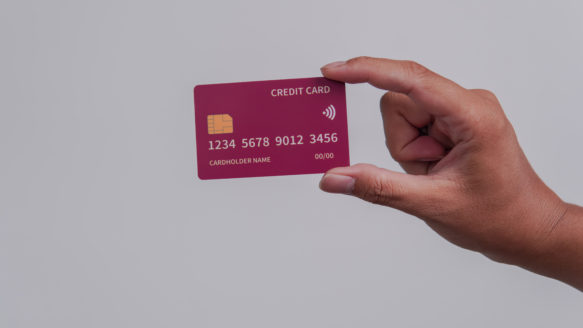
Money & Your Mental Health
Does thinking about money cause you stress? Do you spend nights tossing and turning, worried about bills? Does checking your bank balance make you anxious? Or does the thought of your debt make you feel overwhelmed? If so, you’re not alone. Recent data from the MNP Consumer Debt Index shows that 71% of Albertans worry about paying back their debt. Many can’t afford basic living expenses due to high interest rates and inflation. In fact, half of the people in Alberta regret the amount of debt they have.
These financial concerns are more than just numbers; they deeply affect our mental health. Many people in Alberta feel anxious (59%) and stressed (57%) due to their financial situation. Some also feel alone (51%) and ashamed (42%) because of their debt. Financial worry is widespread in Alberta and it can really impact our mental health, emphasizing the need for money management strategies.
In this post, we’ll help you understand the stages of debt and share practical steps to get rid of debt. We’ll also share inspiring stories like Jacqueline’s to show you how others have overcome their financial struggles. With a plan in place to pay off your debt, you’ll feel less stressed, and your well-being will improve.
The five stages
Like the five stages of grief, debt also has its cycle.
- Denial: Many people dealing with debt of any size like to pretend it doesn’t exist. It’s that whole idea of, “What you don’t know won’t hurt you.” By avoiding your debt and the signs of it, you can continue to live as you are, avoiding your fears and reality.
- Anger: Once reality hits, denial is often quickly replaced with anger. Why did you let things get so bad? Why couldn’t you get a handle of your finances? Why don’t you have a better paying job or why did you take out that loan? But here’s the thing―everyone fails. Just because you made mistakes with your money or let your debt get ahead doesn’t make you any less of a person. And using up your energy on this stage doesn’t help you in the end, so it’s best to just move on.
- Bargaining: This is the stage where you’ll often make empty promises like, “I’ll never take out another loan again!” or “I’ll never use my credit card again!” The guilt you feel at this stage leads you to believe that if you make a deal with yourself and your higher power, you’ll gain back that control you lost. This is also usually when dreams of winning the lottery will fix everything… (sound familiar?)
- Depression: This one might hit a little too close to home for some, but that’s okay. As you well know, your mental health suffers when your financial worries overcome you. It’s normal to feel defeated by your debt. Thoughts like, “I’ll never get out of debt” and “What’s the point of working so hard if I never even get ahead?” can be debilitating. By putting up these mental barriers between you and your financial freedom, it’s easy to fall prey to your negative thoughts and let your depression and anxiety seep in.
- Acceptance: Once you come to terms with your debt and financial struggles, this is when you start to see a way out. You’ve moved past the anger, bargaining and depression and you’re ready to start your life anew. You’re ready to face your finances head-on and dig your way back out.
Success Story: How Jacqueline’s Mental Health Improved by Getting Out of Debt

When you’re deep in debt and feeling the pressure, it can be tough. But hearing stories of people who turned things around can give you hope and help you realize you can do it, too.
Take Jacqueline; she hit a rough patch when she lost her job out of the blue, had no savings, and found herself owing $25,000. She was battling depression, and the money stress made her mental health struggles worse, leaving her feeling stuck and down. But then, she heard a radio ad for Money Mentors that gave her the nudge she needed to reach out for help.
With the guidance of a Money Mentors credit counsellor, Jacqueline started the Orderly Payment of Debts program. The OPD program, as it is often called, helped her get a grip on her debts, even the ones she owed the government. Not only did the collection calls stop, but her money management skills improved. As she regained control over her finances, her mental health took a turn for the better, too. Jacqueline’s journey shows that by taking that first step to ask for help and get the support you need, you can transform your life. If you’re going through tough times, there is hope, and you can overcome your debt, too.
Your next steps
Once you’re ready to tackle your financial issues, here are some great next steps to take:
Find your why
What’s your motivation for getting out of debt or managing your money better? What are your short-term and long-term goals? Once you have your “why,” you’ll be more determined to succeed.
Own it
Take a good, hard look at what brought you to where you are today―and then let it go. There’s no use harbouring resentment to past choices and decisions. Direct that energy instead to your future choices and decisions that will help you reach your goals.
Remove the blinders
It’s easy to live life with cognitive blinders, seeing only a narrow viewpoint. Take a step back and look at the larger picture. Identify the holes in your financial plan, look for opportunities to put you in a better financial position and reach out to those who are a part of your financial journey―like your financial planner, service providers and creditors.
Ask for help
While your financial struggles might feel all-consuming and never-ending right now, there is always a way out. Debt is solvable. It’s only temporary. Most people find it difficult talking about their finances with others, and that’s okay. Money Mentors’ counsellors understand that everyone’s financial situation is unique, and no two struggles are the same. They provide free, unbiased and approachable advice for those who can’t see past their debt and are looking for a better quality of life.
For further mental health support, call Alberta’s toll-free Mental Health Help Line at 1-877-303-2642 or reach out to your local mental health resources.
Take care of yourself
Mental health issues can manifest in many ways so it’s important to take the time to care for yourself. Whether it’s practicing self-care or simply checking in with yourself daily, don’t skip this step. Here’s a simple check-in for those moments when your negative thoughts feel too powerful:
- Pause for a moment and take three deep, slow breaths. Take this time to focus on the present and let the outside world and your stresses, worries and thoughts slide away.
- Start to reflect on your five senses. What are you hearing right now? Seeing? Feeling? Smelling? And tasting? Now turn your attention to your emotions―how have these negative feelings, anxiety or panic affected your body? Are your fists or jaw clenched? Is there a knot in your stomach? Is your heart beating faster than normal?
- Listen to your self-talk. What are you telling yourself right now that is making you react this way? Are you blaming yourself for a financial blunder? Are you telling yourself that you’ll never reach your financial goals? Are you shaming yourself for making a recent purchase?
- Now that you’re aware of what is being said, felt and sensed, redirect your attention to stopping that negative conversation, unclenching your fists and jaw, releasing the stress in your stomach, slowing your heartbeat and cultivating new positive habits.
Remember to give yourself grace. This journey isn’t easy, and your finances play a big role in your life. But by following the above steps and dedicating yourself to change, you will be able to overcome your financial struggles and improve your mental health.
And we will be with you every step of the way.
Have questions?
Need more information or want to talk to a certified financial counsellor for peace of mind? Let us help.
Call 1-888-294-0076 or book an appointment. It’s free for all Albertans.








